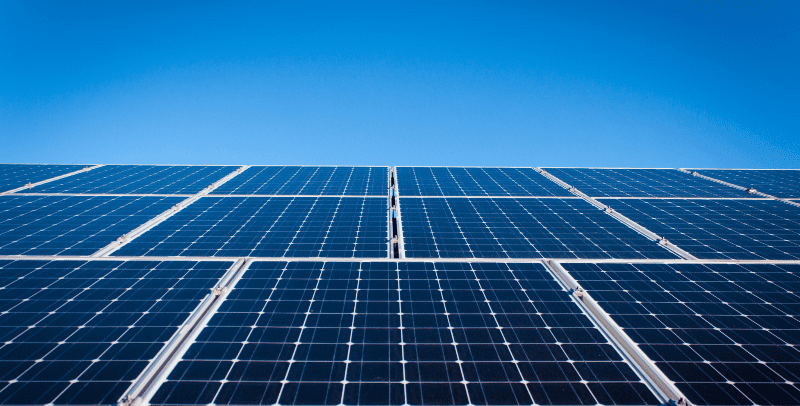
Solar Hot Water: Your FAQs Answered
Solar power has been a talking point in Australia for decades. In the mid-2000s it enjoyed massive growth thanks to Government incentives and rebates. However, for many of us, there are still lingering questions over how well it works, and how solar hot water systems can benefit us.
Metropolitan Plumbing can answer some of those burning questions about solar hot water systems that just won’t go away. From the basics of how solar works, to whether you can drink water heated by solar power. If there’s something you need to know, we have the answer.
What Types Of Hot Water Systems Are Available?
Solar hot water systems come in various types, including close-coupled systems, where the storage tank and solar collectors are mounted together on the roof, harnessing sunlight directly. There are also split systems, with collectors on the roof and the tank on the ground, and heat pump water heater systems, which extract heat from the air. Each type offers distinct installation and efficiency benefits to suit different household needs and preferences.
How Does A Solar Hot Water System Work?
Firstly, let’s distinguish between two types of solar panels, also known as solar collectors. They are an evacuated tube or flat plate system.
Flat plates (or flat panels) are more common, kind of like a dark blue pane of glass on the roof. Copper pipes directly connected to a roof-mounted water tank run through the glass-covered panel. Energy from the sun heats the copper, and the absorbed energy gets transferred through to a storage tank. When you need hot water from your solar water heater, you draw it directly from the tank.
Meanwhile, evacuated tubes are essentially a 2-for-1. There’s an inner and outer glass tube, separated by an insulated vacuum containing a copper pipe for efficient heat transfer. Chemicals assist in heat absorption, which then travels through a manifold and undergoes condensation. This heat absorption cycle repeats until it warms the water in the tank.
Does Solar Power Work On Cloudy Days?
It’s one of the most common questions, and rightly so. After all, what is the value of solar hot water systems if they don’t work 24/7? No one would blame you for thinking you’re better off sticking with your gas hot water system or electric storage tank system.
That being said, a solar hot water system will work best during long summer days with full sun and few clouds. There’s more sunshine and heat energy to absorb. However, they also work well in cold climates because they can better conduct electricity and the heat that is present.
Even on dark winter days, you can expect a solar system to produce about 25 per cent of its regular output. Now, this may not sound like a lot of energy from the sun alone, but often it’s enough to cover all your daily needs. Most solar hot water systems use either an electric or gas booster too. These boosters work in conjunction with the sun’s energy to provide the required energy needed to heat water.
Can We Drink Solar Heated Water?
Regardless if it’s solar hot water, or an electric or gas booster element, the recommendation is you do not drink hot water from the tap. This is because hot water systems, especially storage tanks, can contain minerals and bacteria from the heating process.
Traces of copper could be found in water if it’s left standing in the pipeline or tank for too long. It’s always good to run your pipes for at least 30 seconds before drinking water from a cold tap. But be sure to not just flush this water away! Use it for watering the garden or dishwashing.
Does Cold Weather Impact Solar Hot Water Systems?
In the colder parts of Australia which experience frosty winters, can solar power stand tall against the nippy conditions? Yes. Most solar hot water systems include a frost protection valve or anti-frost valve. It prevents water from freezing when the temperature drops.
When the temperature falls to 3ºC or lower, the frost protection valve opens. Warm water from the storage tank flows back through the solar collector panels, limiting the chance for solar collectors to freeze. And once the external temperature rises to 4ºC – a subtle but important degree change – the valve closes again.
However, even with frost protection installed, it is likely a solar panel will need to have the occasional repair following harsh winters, but it certainly won’t be humbled by the cold temperatures. You’ll still have hot water to enjoy!
Is It Worth Getting Solar Hot Water?
Okay, here’s the big answer. Is it worth getting a solar hot water system? In a lot of ways, it does depend on your individual circumstances and there is no one definitive answer.
You may find a gas instantaneous system is best, or even a heat pump. There is a wide range of systems on the market and what works for your neighbour may not be right for you.
But here are the facts.
Water heating typically accounts for 25 per cent of electricity bills each year. If you suddenly swapped to solar power overnight – even natural gas or electric boosted – you’d see anywhere between 50-75 per cent of energy savings just on water heating per year, at least when compared to conventional gas heating or electric storage.
Factor in Government Incentives Though…
Solar hot water systems can be cost-effective, thanks in part to government rebates and small-scale technology certificates that alleviate initial expenses. They harness excess power from the sun, translating to significant energy savings. Over time, the reduced energy bills often offset the upfront costs, making solar hot water a financially savvy choice for many households.
Savings will depend on whether you use a gas or electric booster. Solar is also a long-term investment as the upfront costs of installation are higher, so the running costs will lead to an overall average cost saving, not quite on day 1 or day 100.
Is A Solar PV System More Efficient Than A Heat Pump Water Heater?
Heat pump water heaters generally surpass solar PV systems in energy efficiency. They can save up to 80% of the energy that equivalent solar systems consume, as they transfer rather than produce heat. On average, heat pumps deliver 3 kilowatts of heat for every 1 kilowatt of energy used, with an efficiency rate of 65-70%. They also have lower initial costs and operate efficiently in various weather conditions, unlike solar hot water heating systems, which rely heavily on sunlight and unshaded space. Thus, for consistent and efficient water heating, heat pumps are often the preferred choice
Consult With The Experts In Solar Hot Water Systems
It’s not always easy to decide what hot water system is best for you. The experts at Metropolitan Plumbing can help. We’ve been working with hot water systems for over 25 years and can assess the unique needs of your home.
That means we can provide a tailored solution for hot water upgrades or any emergency hot water heater installation. Just give us a call and our team can help set up a visit from one of our local technicians.
Published: 2020-09-23

















